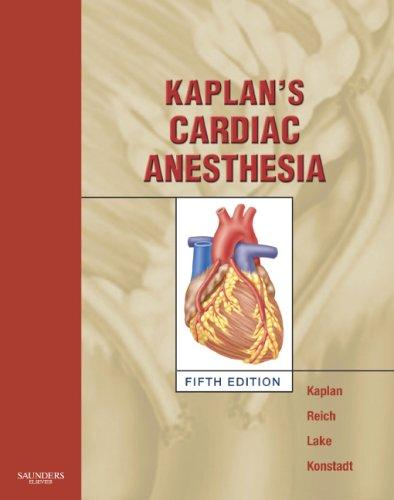Kaplan's Cardiac Anesthesia, 5th Edition
Chapter 4: The Future of Cardiac Surgery and Anesthesia - The Future of Cardiac Surgery, Anelechi Anyanwu, David H. Adams

Chapter 4: The Future of Cardiac Surgery and Anesthesia - The Future of Cardiac Surgery
Anelechi Anyanwu, David H. Adams
Pages 59-64
Excerpt:
“The future of cardiac surgery is closely related to the future of cardiology (see Chapter 3). Because of advances in diagnosis, better medical management, and changing epidemiology and prognosis of cardiovascular disease, the indications for surgical therapy have evolved considerably since the 1980s. However, the greatest determinant of future cardiac surgical practice is the rapidly expanding arena of interventional cardiology. Several diseases that were the domain of surgery can now be managed with percutaneous interventions. The scope and practice of cardiac surgery have evolved considerably since the 1950s (see Chapters 1 and 2) and will continue to evolve in response to these changes in epidemiology and cardiac diagnosis and management. New surgical procedures are being developed while some procedures have become obsolete. For example, in the 1980s, endoventricular resections formed the mainstay of treatment for intractable ventricular arrhythmias, but these procedures are rarely used and have been superseded by new pharmacologic agents and implantable defibrillators. In contrast, chronic atrial fibrillations (AF) encountered in surgical patients, which was regarded as untreatable in the 1980s, is now treated with surgical ablation (see Chapter 13). Changes in surgical practice have obvious implications for cardiac anesthesiology. The developments in cardiac surgery that are most likely to impact on the cardiac anesthesiologist are the changing demand, changing patients, evolution of new surgical techniques, and reduced invasiveness of surgery.”
Share
Publications
-
2-Year Clinical and Echocardiography Follow-Up of Transcatheter Mitral Valve Replacement With the Transapical Intrepid System
Vinayak Bapat, Eric Weiss, Sean Pinney, David H Adams, Angie Zhang , Michael Mack, Martin B Leon, et al. -
Optimal timing of Ross operation in children: A moving target?
Igor E Konstantinov, Emile Bacha, David Barron, Tirone David, Joseph Dearani, Yves d'Udekem, Ismail El-Hamamsy, Hani K Najm, Pedro J Del Nido, Christian Pizarro, Peter Skillington, Vaughn A Starnes, David Winlaw -
Mitral Valve Intervention in Elderly or High-Risk Patients: A Review of Current Surgical and Interventional Management
Maheedhar Gedela, Busra Cangut, Lucy Safi, Parasuram Krishnamoorthy, Dimosthenis Pandis, Ahmed El-Eshmawi, Gilbert H L Tang -
Total artificial heart implantation as a bridge to transplantation in the United States
Shinobu Itagaki, Nana Toyoda, Natalia Egorova, Erick Sun, Timothy Lee, Percy Boateng, Gregory Gibson, Noah Moss, Donna Mancini, David H Adams, Anelechi C Anyanwu